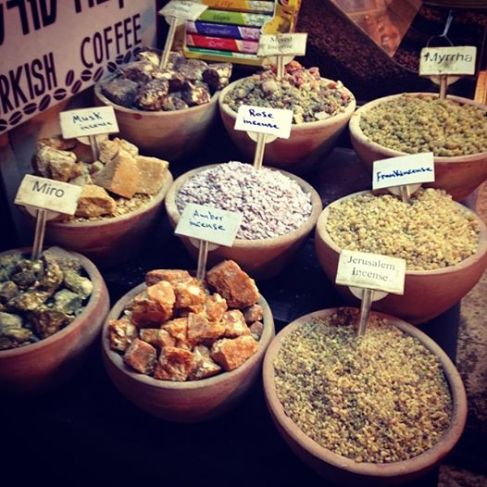Every morning in Jenin I wake up so happy that I can’t believe that this is my reality. I am living across the world from home, with great friends and doing the work I love. I am acting on an idea developed in the back of a bus in May 2012 at a time when everything about this project seemed impossible. The process of getting here was not an easy one, but I truly believe that everything works out in the end. Life doesn’t always turn out as planned, but the best surprises can come out of what seem to be the worst possible situations. These challenges can deter us from our passions, or they can motivate us to work harder than ever before. Today, in the parent support group, it became clear that the mothers in our program are starting to see this as well. They say that they have hope for their children in a way that they have never had before, and for the first time they have the tools to get started on the process.
As happy as I am every morning, I am not always motivated to get out of bed to experience that morning cold that is still present in spite of the 70 degree weather. I have read more books for fun here than I have since high school, and some days I would be happy just reading–about autism, about history, about anything and everything, but today was Daniel’s 27th birthday and we had a surprise breakfast to make, so reading was not an option.
Daniel told us that he loves pancakes, something that we have not yet found in Jenin, so when we found a $8 box of pancake mix at the bakery yesterday we picked it up. In order to assure Daniel that he wasn’t getting TOO old, we made him a Mickey Mouse pancake and brought it to him in bed. (You’re never too old for Mickey Mouse!)

(Daniel’s Mickey Mouse Pancake with bananas, Nutella and coconut)
After breakfast, we prepared for today’s parent practice session. Since some of the families seemed overwhelmed by all of the toys available at the last practice session, we created a station for each family that had signed up for today’s session and set out a few preferred items for each child. This was this group’s first practice session and most of the families worked on manding and tacting exercises using picture cards, toys and puzzles. Both the parents and our therapist team felt that this session has been the most successful yet. One mother in our program noted that on past program days her son was reluctant to come and threw tantrums, but today he came willingly and was happy to arrive.

(Hanaa* works with son Abed* on a non-verbal manding exercise)
In addition to our regular families, we have a family who has been attending our trainings during their visit to Jenin from another city. Their son Omar* has strong manding and tacting skills but struggles with social interactions so today we taught his mother some activities he can do to strengthen his social skills and had him interact with his brother and the brother of another child in the program in a series of activities. The family plans to continue working on these activities at home and they will stay in touch with our team over email in order to learn new information and receive feedback on their work at home.
Social Skills:

(Omar and his brother take turns while playing a fishing game together)

(Omar plays catch with typically developing peers and sibling)

(Omar plays clapping game with therapist, mother, typically developing peers and sibling)

(Omar completes intraverbal conversation activity with a typically developing peer)
Support Group
The enthusiasm and commitment of the parents that we saw during the trainings today carried over into the support group. The mothers feel that they know what to work on with their children at home in the upcoming week and are excited for their community outings with the therapy team this week. On these outings, the mothers and their children will be accompanied in the Jenin community by a member of the therapist team and a translator. We will take the mothers and their children to local shops in order to work on behavior in public. Our team will get in touch with the businesses in advance and will ask them to be understanding when we bring children with special needs into their shops. Between the connections we have made in Jenin and Yousef’s vast network of connections in the community, we will not have a problem finding places that will welcome us for these outings.
Reflections from the Mothers:
“My son was excited to come to the program today, but he still cried when he was here. I was having trouble getting him engaged in activities but I learned some different ways to play with him from another mother in the session and these seemed to work better. I will continue to work with him at home using her methods.” -Hanaa*, mother of Abed*(5)
“Sometimes my son responded in the session today, but sometimes he did not. He is responsive when I do these activities at home so for now I am working on getting him comfortable [at the center] so that he can speak and ask for what he needs outside of my home.”-Tala*, mother of Myasar*(5)
“Academically, my son knows everything he needs to know and is able to go to school, but when I take him into the community, I know that people can still tell that he has autism. He doesn’t interact with anyone else around him. My goal is to teach him how to interact with others in the community and I was happy to get him working with some friends without autism today. I am very exciting for my community outing with the therapist team this Wednesday so that I can get feedback on how to work with him in public. I wouldn’t feel comfortable taking him out in my home community but since I don’t live in Jenin, I am comfortable with it here. I think that these outings are a great idea!”-Naheel*, mother of Omar*(9)
Birthday Celebrations
After we finished the session, we took a bus to our friends’ house in a nearby village for Daniel’s surprise birthday celebration. Our friends spent all night last night and all morning cooking and baking for the occasion and I have never seen such a feast in my life. They cooked a traditional Palestinian dish called Jaddara (rice and lentils) and made fresh salads with vegetables from their garden. Our friends’ mother baked fresh bread in an underground sand oven in their back yard. They made tea, followed by Arabic coffee, followed by cappuccinos.
We spent most of the afternoon relaxing in our friends’ living room, learning Arabic, playing card games, joking and listening to music. Another one of our favorite activities with our friends is Uno. Katrina brought Uno cards and this is another thing (in addition to the Mickey Mouse pancakes) that you can NEVER get too old for. The nine of us, ages 11-33, sat in a circle for much of the afternoon playing the card game, laughing and keeping score: wins for America v. wins for Palestine. America is ahead by one but our Uno Olympics are far from over!
When it was time for birthday cake, we had a second round to our feast. We bought a cake for Daniel yesterday and our friend baked one last night. She also baked one of her favorite recipes “Easy Cake” and made a traditional Palestinian dessert that she calls “Crazy” though I can’t imagine that we are hearing her correctly on that one. While Daniel was outside playing with turtles and watching the bread bake, my friends and I set up his birthday desserts and prepared his gifts. When he came in, we sang happy birthday and spent the rest of the evening celebrating. Before we knew it, it was 10p.m.

(Daniel’s birthday dessert feast: 2 birthday cakes, Easy Cake and Crazy)

(Happy 27th birthday Daniel!)
Recently, I have been asked many questions by friends back home about what life is like in Jenin and I can sum it up in three words: Ahlan wa Sahlan, Arabic for “Welcome.” Everywhere we go we are welcomed with warmth and enthusiasm. The friends we have had for a month feel like family and they treat us as through we truly are their brothers and sisters. With our friends, the language barrier feels irrelevant. Some things, like smiles and laughter and our abundance of birthday celebrations truly are universal.
Ahlan wa Sahlan. Welcome to Jenin.
-Melissa




























